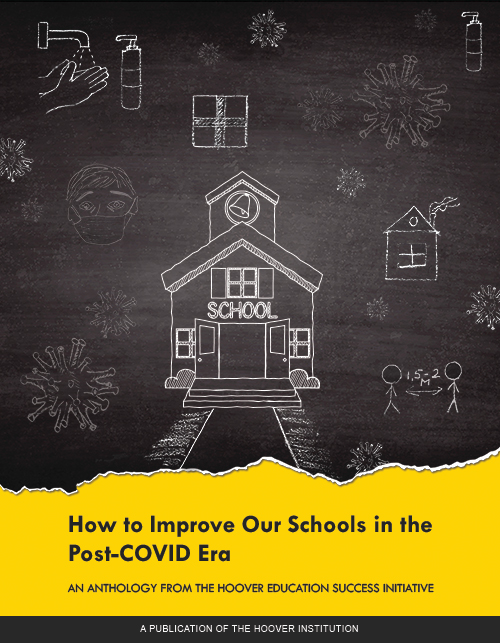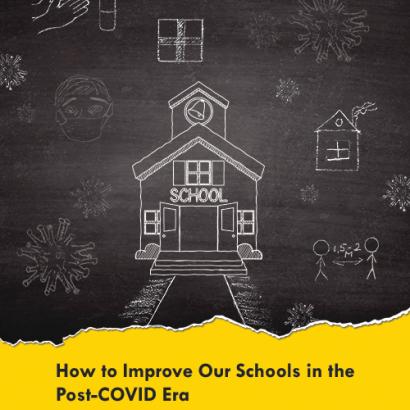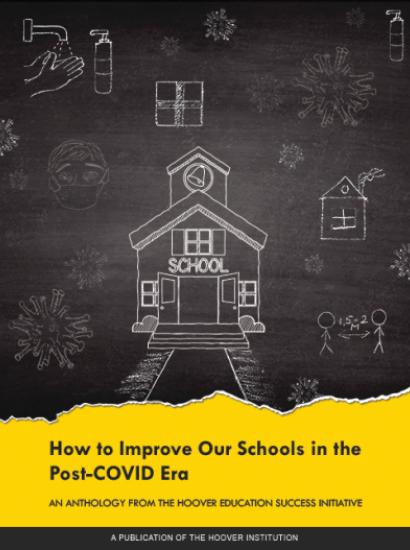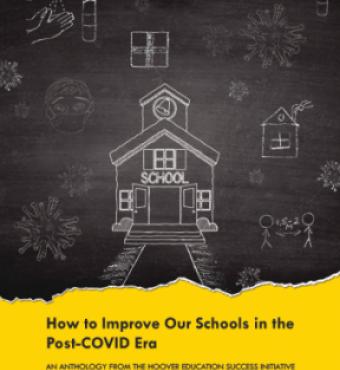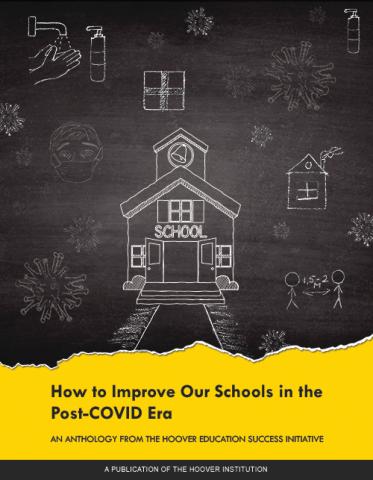Hoover Institution (Stanford, CA) – Four Hoover education policy experts are forcefully arguing that school systems cannot return to business as usual as they re-open from the pandemic. Their newly released book, How to Improve Our Schools in the Post-COVID Era, explores in-depth the lingering extent of the current crisis, the foundational elements from the previous era that must remain, and the areas where reform and innovation are now ripe. The book, comprised of eight topical chapters, offer a set of specific, research-based actions for state and federal policymakers that offer the possibility of reducing long-term educational and economic harm.
They contend that the “old” school system was not delivering optimally, whether judged by excellence, by equity or by efficiency. Change was overdue before COVID struck, but is even more urgent in the pandemic’s aftermath. The light at the end of the pandemic’s tunnel presents a rare opportunity to make needed reforms and encourage needed innovations even as it poses enormous challenges in every state and across the country.
“I strongly believe that America’s education system has the ability to redouble its efforts on behalf of students as we reemerge from the COVID-19 crisis,” said Hoover Institution Director Condoleezza Rice. “The Hoover Institution has an important role to play in working with governments and supporting communities who want to turn great ideas into policy and action for students and families.”
The volume is produced by the Hoover Education Success Initiative (HESI), chaired by Paul and Jean Hannah Senior Fellow Eric Hanushek. HESI is an innovative effort launched in 2019 focused on providing state-level education leaders with sound research-based recommendations for the improvement of K-12 education across America. Members of the HESI team and co-authors with Hanushek include Senior Fellows Chester E. Finn, Jr. and Paul E. Peterson, and Distinguished Research Fellow Margaret (Macke) Raymond. Hoover Distinguished Policy Fellow and former New Mexico Secretary of Education Christopher N. Ruszkowski serves as Executive Director.
These scholars and policy experts predict dire consequences for America’s youth from the COVID-19 pandemic and the shut-down of schools in March 2020. Dr. Raymond predicted that students would suffer substantial initial reductions in learning; these have grown through the current school year. Dr. Hanushek now projects that after nearly an entire year of not attending schools in-person students will see a decrease in 6 to 9 percent of their lifetime earnings. These figures correspond to a cumulative reduction in 3 to 4 percent of GDP over the next century. The HESI team stresses that in order to make up for these clear and real losses, schools and school systems have to become more fundamentally stronger and more innovative than they were prior to the pandemic.
The urgency of this crisis, and the intense pressure to revert to prior broken institutional practices across America’s school systems, spurred the four Hoover fellows to analyze scientifically-based policies that can improve education after the pandemic. The authors offer bold recommendations relating to teacher compensation, school accountability, school choice, collecting student achievement data, managing school budgets in a crisis, graduation pathways, portfolio districts, and the alignment of research and policy decisions.
Importantly, each chapter includes commentary from members of HESI’s Practitioner Council, who offer initial dialogue and practical commentary based on their perspectives in executing education policy. These 25 leading education professionals and policymakers represent 20 different states and include state education commissioners, state legislators, and state board of education officials. They regularly engage with HESI and provide invaluable perspective from the field. Their contributions ground the policy recommendations in front-line experience and context.
The Hoover Institution has also supplemented the collection with an online forum where the general public is invited to offer further comments and to engage in discussion with HESI.
Chapters in the volume include the following:
- Learning Losses and What to Do with Them
By Margaret (Macke) Raymond - Testing: Education’s Indispensable GPS
By Chester E. Finn., Jr. - Results-Based Accountability for Schools: Education’s Heaviest Lift
By Chester E. Finn, Jr. - COVID-19, High School and the “Both/And” World
By Margaret (Macke) Raymond - Budget During/Post Recovery
By Eric Hanushek - Does the World Change for Teachers?
By Eric Hanushek - Post-Pandemic Portfolio Schools
By Paul E. Peterson - Expand School Choice, and Provide Fiscal Relief to Districts
By Paul E. Peterson
Click here to read the entire volume.
A MESSAGE FROM HOOVER DIRECTOR CONDOLEEZZA RICE
For coverage opportunities, contact Jeffrey Marschner, 202-760-3187, jmarsch@stanford.edu.







